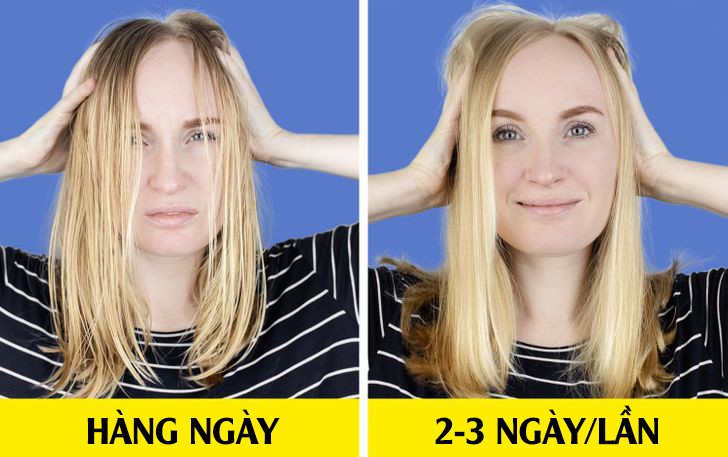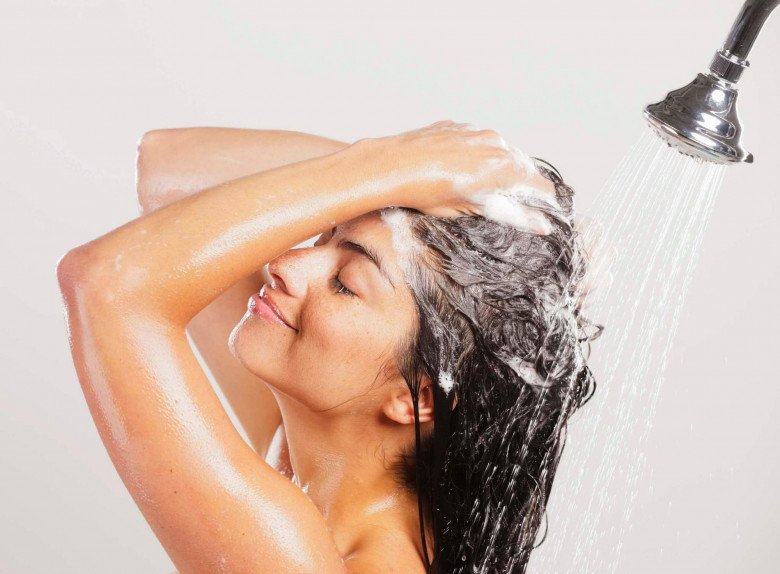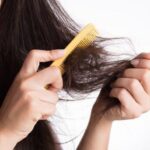There are many reasons why some people have shiny, healthy hair, while others experience increasing dryness and damage. You might think that this solely depends on the type of shampoo you use, but that’s not entirely accurate. Apart from the quality of hair products, the frequency of hair washing also plays a significant role in maintaining hair and scalp health.
Some people prefer washing their hair daily to feel clean and refreshed, while others opt for a three-day interval to avoid excessive use of chemicals. So, is there a difference between these two hair washing frequencies?
Differences Between Daily and Every-Three-Day Hair Washing
For those who prioritize cleanliness, washing their hair every day might seem like the best option. However, over-washing can lead to hair damage. Dr. Joshua Zeichner, Director of Cosmetic and Clinical Research in Dermatology at Mount Sinai Hospital in New York City, states, “Over-shampooing can lead to dry, brittle hair that is more prone to breakage and can cause scalp irritation.” Moreover, the friction caused by rubbing shampoo or conditioner on the hair can damage the hair cuticle (the outer layer), resulting in dull, tangled hair that is more susceptible to split ends.
Women with sensitive scalps should be especially cautious. Perry Romanowski, an American cosmetic chemist, explains, “Exposure to detergents can irritate your scalp. For some people, over-shampooing can lead to itching and flaking.”

Frequent hair washing can make hair greasy faster. (Illustrative image)
It’s also worth noting that some people experience increased hair fall during washes, unaware of the potential damage caused by shampoo. Those who wash their hair frequently are more likely to suffer from severe hair loss and scalp issues. Simply put, the effect of shampoo on the scalp is similar to the impact of detergent on clothes.
While the impact of shampoo is relatively milder and less drastic than laundry detergent, it can still cause harm. Therefore, inadequate rinsing of shampoo can lead to buildup in the hair follicles, resulting in scalp issues and impaired hair growth.
On the other hand, those who wash their hair every two to three days are less likely to experience hair damage and scalp irritation. By using conditioner, they can even achieve softer and smoother hair compared to those who wash daily.
How Often Should You Wash Your Hair?
The interval between hair washes varies from person to person. Most people tend to wash their hair every other day, or even every two to three days. Several factors can influence this frequency, including:
– Age
– Ethnicity
– Hair length
– Hair type
– Level of physical activity
Here are some guidelines on how often you should wash your hair based on these factors:
1. Depending on Your Hair Type

Oily hair requires more frequent washing compared to dry hair. (Illustrative image)
If your hair tends to be oily or you experience noticeable dandruff, you should wash it more frequently, such as daily or every other day. For those with less oily hair and minimal dandruff, you can extend the time between washes.
– Oily hair: Wash every 1-2 days
– Dry hair: Wash every 3-4 days
2. If You Have Colored Hair
Coloring your hair can be a fun and creative way to change your look, but if you want your new shade to last, reduce the frequency of your hair washes. Washing your hair just 2-3 times a week is enough to keep it clean and maintain the vibrancy of your color.
3. Depending on Your Level of Physical Activity

After an intense workout, your hair can become tangled and dull. Showering post-workout not only keeps you clean but also aids in muscle recovery. If you’re an exercise enthusiast who spends hours at the gym, daily hair washing can help protect your scalp from fungal infections and clogged pores, reducing hair breakage.
The Ultimate Guide to Hair Smoothening: Steam Tech for Silky Hair this Lunar New Year 2024 – Beware of Salon Scams!
The arrival of new hair technologies will undoubtedly help women shine during the early spring days, but it’s essential to exercise caution. The latest innovations in hair care and styling offer exciting opportunities to achieve stunning looks. However, it’s important to approach these advancements with careful consideration to ensure the health and well-being of your hair. As we embrace the newest trends and techniques, let’s also remember to prioritize the long-term health and vitality of our locks.


































